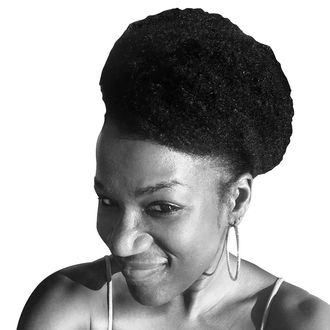
I’m curious about that whole genre of magazine profiles where a man portrays a female celebrity as a sort of sexual goddess.
I should say that I’ve had experience on the magazine side for years, so I’ve actually set those up and also edited them. They have male writers about these female celebrities for a majority of these stories, and it ends up becoming this trend where the writers paint this picture of the celebrity from their viewpoint, which is obviously the male gaze, and it’s often hard to break out of. It starts there. Oftentimes the magazine is pairing her with a male writer for a specific reason: For instance, that they’ll get sexualized tension. Or they’ll just choose a male writer because they’re thinking of their audience. Assigning it to male writer because their audience, they feel like, is mostly male, and that’s who they’re writing to. There’s this aesthetic that presumably has to be upheld: where women are objects of desire, so that’s how they end up getting written about.
What are some of the tropes? There’s, of course, talking about physical appearance a lot.
Yeah, that’s the main one. Obviously profiles are meant to be visual, in the form of the writing, where you’re trying to paint a scenario for the reader. But there’s this obsessive focus on physical appearance, sometimes to gross effect. Sometimes it’s fairy-tale-ish. There’s this idea that the woman can’t possibly be real, which is a little bit of an issue. There’s clearly a bias because they wouldn’t take that same approach with male figures — or, traditionally they haven’t.
Right. The profiles of women often ignore their work and their artistic achievements. How do you see sexism at play in the ways women are covered outside of celebrity news? Like, in politics?
That was Hillary’s whole issue to deal with, when she was first running for Senate. It’s kind of a default: mentioning or describing appearance, trying to use it as a crutch, or using it as a default criticism or critique.
Is it often a tendency to use the person’s appearance as the basis for some dubious argument? Like, reading too much into her clothing or her facial expressions?
Usually in those cases, it’s supposed to be that we’re analyzing her to say, “She’s this type of person who’s unelectable,” or something like that. Critiquing appearance is the easiest entry point.
Do you feel like it’s gotten better at all in recent years?
Yeah, I’m sure a lot more people are having conversations because of sites like Jezebel that have pointed out these failures. There’s more of a thought process behind it. So yeah, I think it’s better, and there’s also more equalization. A colleague of mine, Emma Carmichael, did a piece for Gawker a few years ago about how female writers were writing about male subjects and slipping a little bit — doing it in this crushy kind of way. So at least there’s more equalization of the whole process, editorially. I’m not sure that type of writing will ever go away, but I do think it has improved.
It seems like that Margot Robbie story was shamed pretty broadly on Twitter and elsewhere online. I guess that’s progress.
Social media definitely provides more of a conversational, like, resting place where everybody can talk about it. If it’s contained to just the site that wrote the piece — if it’s just Jezebel writing a post and its commenters — that’s different. But if it’s Twitter, where it’s all these people, from all these locations, being able to provide feedback, then that just creates more urgency and just more of a focus on the story that wouldn’t have been there before, obviously. It would just be, what, a few angry letters that only the people who work there would read? So Twitter and Facebook, things like that — I would hope that, in turn, makes people think twice.





























